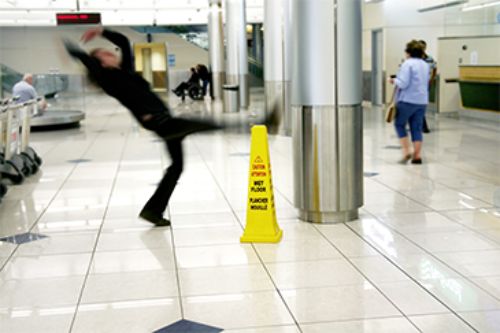In our increasingly connected world, social media has become an integral part of our daily lives, shaping how we communicate, share experiences, and even document our surroundings. However, while social media platforms offer a convenient way to stay connected, they can have unintended consequences, especially in the realm of personal injury lawsuits. This holds true for slip and fall cases in the state of Florida, where the information shared on social media can significantly impact the outcome of your legal proceedings.
Understanding the Florida Slip and Fall Lawsuit Requirements
Before delving into the role of social media in slip and fall lawsuits, it’s essential to have a grasp of the specific requirements governing such cases in Florida. In the Sunshine State, property owners have a legal obligation to maintain their premises in a reasonably safe condition. If a hazardous condition exists, and the property owner fails to address it, they may be held liable for injuries sustained by individuals who slip and fall as a result.
To pursue a slip and fall lawsuit in Florida, the injured party, or plaintiff, must establish certain elements. These typically include proving that the property owner was aware or should have been aware of the hazardous condition, failed to address it in a timely manner, and that this negligence directly led to the plaintiff’s injuries. It is crucial for plaintiffs to provide compelling evidence to support their claims and navigate the legal complexities associated with slip and fall cases.
The Social Media Paradox
As individuals, we often share aspects of our lives on social media without considering the potential consequences. In the context of a slip and fall lawsuit, however, what you post on social media can be used against you. Insurance companies and defense attorneys are increasingly turning to social media as a valuable source of information to dispute or undermine personal injury claims.
When pursuing a slip and fall lawsuit in Florida, it’s essential to be mindful of the content shared on social media platforms. Insurance adjusters and defense attorneys are adept at scouring these platforms for any evidence that may contradict the plaintiff’s claims. Seemingly innocent posts, such as images or status updates, can be misconstrued and used to challenge the severity of injuries, question the timeline of events, or even suggest contributory negligence on the part of the plaintiff.
Impact on Credibility
In the legal arena, credibility is paramount. Anything that undermines the credibility of a plaintiff can have far-reaching consequences on the outcome of a slip and fall lawsuit. Social media, with its real-time and often unfiltered nature, can provide a wealth of information that may be used to cast doubt on a plaintiff’s credibility.
For example, if a plaintiff claims to have suffered severe injuries in a slip and fall incident but posts pictures engaging in physically demanding activities on social media, it could be argued that their injuries are not as debilitating as they allege. Defense attorneys may seize upon such inconsistencies to challenge the legitimacy of the plaintiff’s claims and potentially reduce the compensation they may be entitled to.
Privacy Concerns and Legal Strategies
Given the potential impact of social media on slip and fall lawsuits, it’s crucial for individuals pursuing legal action to be cautious about their online presence. However, it’s equally important for attorneys to navigate these challenges without infringing on the privacy rights of their clients.
Attorneys handling slip and fall cases in Florida need to develop effective legal strategies that balance the need for relevant evidence with respect for privacy rights. This may involve advising clients on the importance of limiting social media activity during the course of their lawsuit, understanding privacy settings, and being cautious about accepting new friend requests or connections.
The Social Media Dilemma in Slip and Fall Cases
The use of social media in slip and fall cases raises ethical questions about the balance between an individual’s right to privacy and the pursuit of truth in a legal context. While social media can provide valuable evidence in establishing or challenging a claim, it is imperative to approach this information ethically and responsibly.
In some instances, the court may need to intervene to address the admissibility of social media evidence. Attorneys may need to demonstrate the relevance and authenticity of the content, while also addressing any concerns about privacy violations. This delicate balance underscores the need for experienced legal representation to navigate the nuances of slip and fall cases in Florida.
Social media can have a profound impact on slip and fall lawsuits in Florida. Plaintiffs must be cognizant of the potential consequences of their online presence, as insurance companies and defense attorneys often scrutinize social media content to challenge the legitimacy of personal injury claims. Balancing the benefits of staying connected on social media with the potential risks in a legal context is crucial for anyone involved in a slip and fall lawsuit.
As you navigate the complexities of your slip and fall case, it is imperative to seek legal guidance from seasoned professionals who understand the intricacies of Florida’s legal landscape. Our experienced team at Serrano Law is committed to providing the support and experience you need to achieve a favorable outcome. Contact us today to schedule a consultation and ensure that your rights are protected throughout the legal process.
